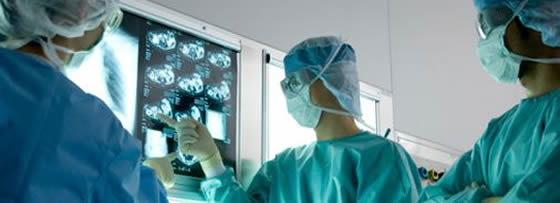Surgical specialties

The Surgical Specialties are the medical specialties that treat diseases or injuries, in which surgical training is one of the most complicated programs to assume, partially because of the dedication in time and lifestyle that a practitioner is obliged to make. A training surgeon will usually become a doctor, then train in basic surgical technique before studying advanced surgical technique in a particular specialty. Cardiac surgeryCardiothoracic surgery is the branch of medicine that deals with treatment of illnesses affecting organs inside the thorax (the chest). Cardiothoracic Surgery is one of the most difficult and exigent disciplines available to a physician who has decided to follow a surgical career.General surgeryGeneral surgery, in spite of its name, is a surgical specialty that deals with surgical treatment of abdominal organs, e.g. intestines including esophagus, stomach, colon, liver, gallbladder and bile ducts.NeurosurgeryNeurosurgery is the branch of medicine focused in the surgical treatment of diseases and disorders of the brain, spinal cord and nervous system.Oral and maxillofacial surgeryIn this field, the majority of operating time is used in the reconstruction of the faces and jaws of severely injured patients. It requires doctors trained in dentistry and medicine.Otolaryngology (ENT)Otolaryngology is a medical specialty that deals principally with illnesses and disorders affecting the ear, nose, and throat.Plastic surgeryPlastic surgery is the field of medicine that applies a number of surgical and nonsurgical techniques to vary the appearance and function of a person's body. Plastic surgeons work with burns and trauma victims, restoring or improving the appearance of body structures.Trauma surgeryTrauma surgery involves fixing fractures, replacing joints and managing degenerative disorders.UrologyUrology is the branch of medicine that deals with diagnosis and treatment of diseases that affect the urinary system as impotence and infertility and the management of diseases of the kidneys, bladder and prostate. |
|
Back to: » Medical Career » Medical schools |
Sponsored by: » Search university » Italian language |


